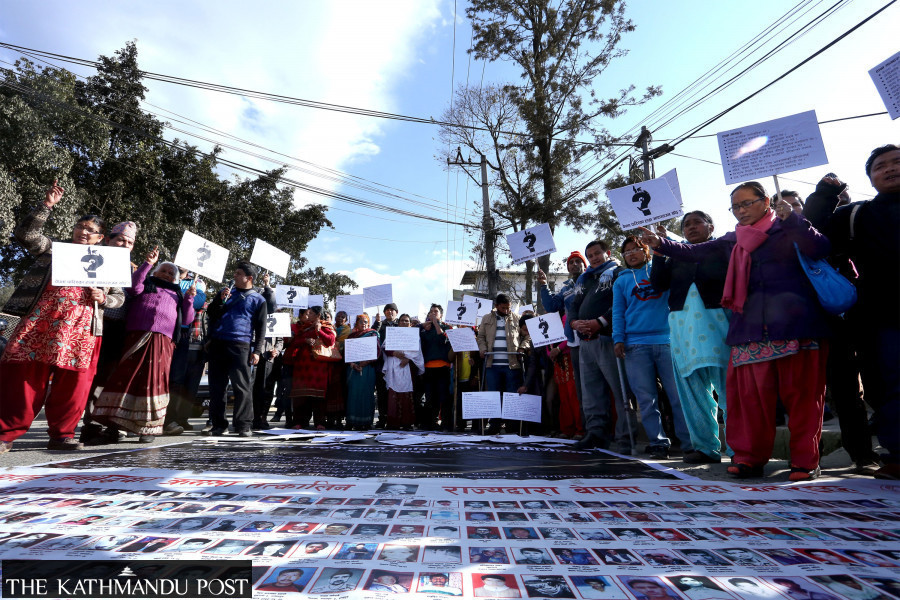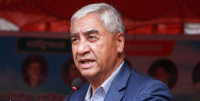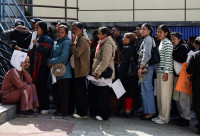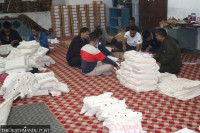National
Nepal conflict victims reject sentence reduction
Ex-child soldiers criticise omission of role in transitional justice law revision bill, demand recognition and support.
Binod Ghimire
The victims of the 1996–2006 insurgency have warned the three-party taskforce formed to iron out the differences on the bill to amend the Enforced Disappearances Enquiry, Truth and Reconciliation Commission Act, to ensure any amendment to the Act is done by keeping the victims’ interests at centre.
They have registered their concerns directly with the members of the mechanism or by issuing statements warning the mechanism not to deviate from the core transitional justice principles. The three-member panel comprising Ramesh Lekhak of the Nepali Congress, Mahesh Bartaula of the CPN-UML, and Janardan Sharma of the Maoist Centre has claimed to be very close to finalising the bill.
A group of victims met Bartaula, asking him not to include any provision that goes against the principle of justice.
“We are particularly unhappy with the provision that reduces sentences by 75 percent for those guilty of serious human rights violations. The proposed special court should have the discretion to decide on reducing penalties,” said Suman Adhikari, founding chairperson of the Conflict Victims Common Platform. “We have clearly told Bartaula that it would be wrong to dictate terms to the court.”
After a month-long negotiations, the three-member mechanism has claimed to have found a way forward. It has agreed to classify arbitrary killings as serious violations of human rights, and reduce by three-fourths the sentencing of those who cooperate in the investigation process.
They also claimed to have agreed to address the issue of former Maoist child combatants by providing compensation but without naming the child combatants. They will be categorised as ‘discharged soldiers’ instead.
The former child combatants have taken serious exception to the agreement saying the bill must recognise them. Issuing a statement on Monday, the Discharged People’s Liberation Army Nepal (DPLAN) said the former child combatants have been sidelined from the peace process of Nepal since its inception in 2006.
“There is no mention of child soldiers in the bill, which is in Parliament. We call upon the government to rectify its position that denies the existence of child soldiers during the 1996-2006 conflict, and to provide appropriate support and resources for their rehabilitation and reintegration into society,” reads the statement.
Talking to the Post, Lenin Bista, chairperson of the DPLAN, said they won’t accept the law that does not recognise them. He said they believe the judiciary will intervene in the matter. A writ petition filed against CPN (Maoist Centre) chair Pushpa Kamal Dahal for using children in combat is sub judice in the Supreme Court. The final hearing of the petition is slated to start on September 8.
Among the 4,008 Maoist combatants who did not qualify for integration in the Nepal Army, 2,973 were verified as minors by a United Nations mission. They are yet to get any substantial support, except for a few thousand rupees from the UN.
“We urge the government and political parties to ensure that the issue of child soldiers and matters related to reparation, compensation, truth and justice be included when the Act is amended,” said Bista.
The three-party panel has claimed it will finalise its report by resolving all the contentious issues on Thursday and then submit the report to the top leadership. On Monday, it held discussions with Minister for Law, Justice and Parliamentary Affairs Ajay Kumar Chaurasiya, secretary at the ministry, chairperson of the Law, Justice and Human Rights Committee of the lower house, and secretaries of the Truth and Reconciliation Commission and the Commission of Investigation on Enforced Disappeared Persons.
The committee members claim that they have reached agreement on all issues except on whether or not the victims, who refuse to reconcile, should be allowed to move the court. While the UML is for keeping the door to seek judicial remedy open, two other parties have reservations on the matter.
“We will find agreements on all issues on Thursday. The bill will get through the ongoing session of the federal parliament,” said Bartaula.
The top leadership of the major parties had on July 1 constituted the three-member committee after the parliamentary Law, Justice and Human Rights Committee, despite repeated attempts, failed to find a consensus on four key issues in the bill.
The House committee will finalise the bill based on the agreement reached in the three-member panel. It then needs to be endorsed by both the chambers of the federal parliament to take effect.
“The victims are closely following the development,” said Adhikari. “They will come up with an official position after the three-party mechanism finalises the bill.”




 22.17°C Kathmandu
22.17°C Kathmandu














